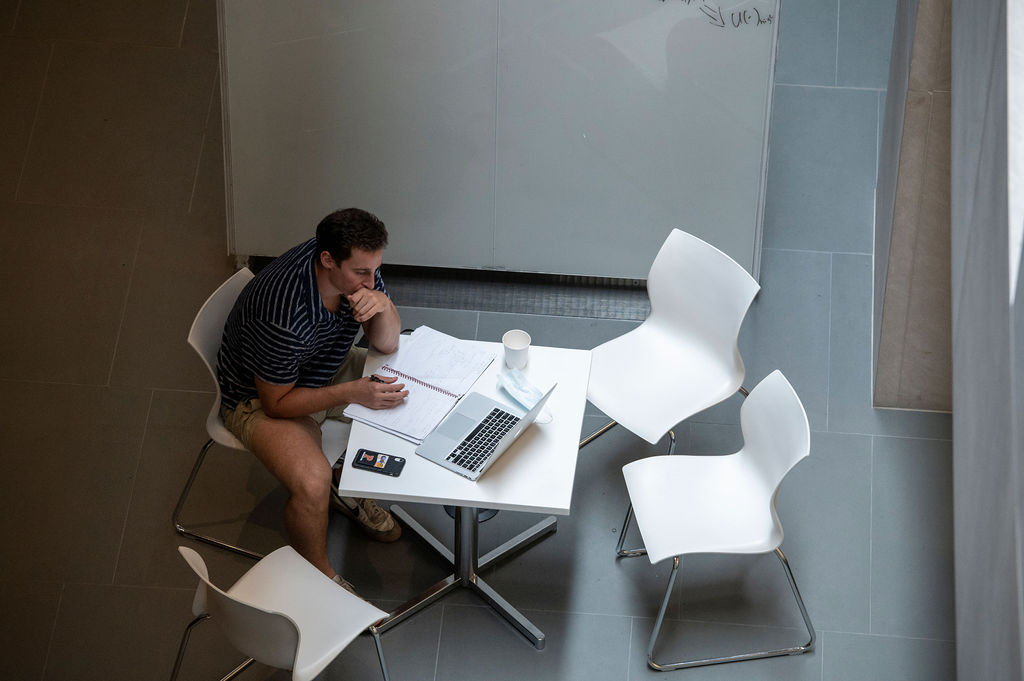Five tips for ECO majors writing their Junior Paper

Each fall, ECO majors begin their Junior Independent Work (JIW) by attending, on Monday and Wednesday evenings, small group lectures and workshops. By the end of the Spring term, each student has published a Junior Paper that explores their individual research interests.
The JIW process can be time-consuming and intimidating–but also rewarding. Here, several ECO majors share advice on how to write a stellar Junior Paper.
If you have other questions about your JIW, visit the Junior Independent Work Handbook to learn more.
1. For a manageable work schedule, start before winter break.
“Aside from topic ideation, the biggest lesson that I took away from this entire process was that Princeton and the Department of Economics have a bounty of available resources and that it does one well to take advantage of it all. I often prefer doing work by myself, but the University does a great job at offering assistance at nearly every step along the way. This means that you should reach out to the research librarians in the library because they have a wealth of information that they would love to share. Keep your advisor and graduate assistant in the loop at every stage because they genuinely want to see you succeed and produce good work. And frontload your work in the fall semester before winter break; when you return in the spring, you want to have set yourself up for a manageable work schedule and aren’t subject to unexpected last-minute scrambles.”
– Devin Sun, Class of 2021. Paper: “The Effect of Uber’s Entrance on Wages for Low-Skilled Occupations Across the U.S.”
2. Don’t be intimidated by math.
“Do not get discouraged or intimidated by math! Econometrics did not come easily or naturally this year, but you can learn so much if you stay calm, read and re-read methodology sections, and ask for help from your advisor, professors, teaching assistants, preceptors, and peers. Professor Farber’s ECO 313 class in the Spring was also a tremendously positive and helpful experience which I would recommend to everyone.”
– Jack Aiello, Class of 2021 (MPA *25). Paper: “Understanding the IMF’s Impact on Income Inequality: Institutional Change or Business as Usual?”
3. Visit the Econ Statistical Services (ESS) team!
“The ESS team was instrumental in helping me analyze and interpret my research. I owe a huge thanks to Oscar for always being eager to help me whether in person, on Zoom, or over a weekend email!”
– Gio Kim, Class of 2022. Paper: “As Far as the Eye can See: Evaluating the Attributes of Successful Entrepreneurial Ventures with Blockchain Financing through Initial Coin Offerings (ICO) in 2017”
4. Be persistent–especially when looking for data.
“I think the most valuable skill I learned from writing this paper is on being persistent. I knew that I wanted to explore educational equity, however, publicly available school-level test-data is quite hard to find and it took me a very long time to find the most appropriate dataset to use. Channeling this persistence has helped me with my Senior Thesis as I try to keep finding new ways to understand my data and the results I’m seeing–even if they don’t necessarily make sense!”
– Asher Joy, Class of 2023. Paper: “Is the Common Core at the Core of Educational Equity?”
5. Recognize that undergraduates can make real research contributions.
“Research is not an efficient market. There are so many data sets and so many questions to ask that it’s impossible for professional economists to. find out everything. Undergraduates can make worthwhile contributions.”
– JC Martinez, Class of 2023. Paper: “The Political Implications of Corporate Philanthropy: Evidence from Pivotal Politics and Legislator Behavior on Environmental Issues”